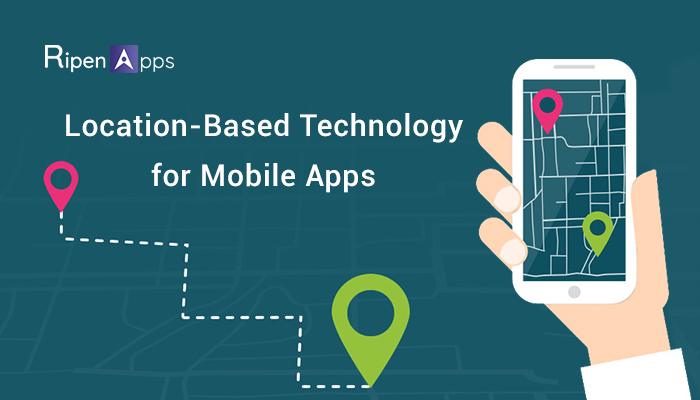Connect with us to discuss how we can leverage your business with Mobile Apps & Location Based Services, Send us your query on [email protected]
Mobile Technology and the Internet are the most powerful innovations that help us to stay connected from anywhere surpassing the geographical limitations.
There are many niches of mobile apps which is influenced by location-based information such as content delivery and personalisation. A personalised and contextually relevant experience is more compelling to users, and increasingly, location is a factor that enhances personalisation and makes the user experience more relevant.
According to Mobile App Market trends and analysis, 2017 will perceive the emergence of Location Based Service, besides the present GPS. This will prove to be a boon for the users as it will provide real-time information.
Geo-location can be used for a number of mobile applications. In fact, it has been rightly identified as the backbone for several businesses, without which it will be nearly impossible for the owners to operate it. One of the optimal illustrations that one can put forward, in this case, is cab based apps such as Uber or Ola.
Location-based Approaches for Mobile Applications
- Beacons
- GPS
- WiFi
1. Bluetooth Low Energy (BLE) & Beacons
A BLE beacon is a small device – usually powered by battery or USB – that emits a Bluetooth Low Energy signal. A modern smartphone in the vicinity can pick up the signal being emitted by the beacon and gain some insight into its own positioning based on knowledge of the beacon’s placement. Beacon App development is a widely used approach for location-based marketing and content delivery in Mobile Application.
Advantages of BLE
- Low Power Consumption.
- It creates adhoc connection immediately without any wires.
- It is used for voice and data transfer.
- Bluetooth devices are available at very cheap cost.
- It has less interference compared to other wireless technologies due to use of FHSS technique.
Disadvantages of BLE
- The bandwidth is lower compared to WiFi.
- One of the big disadvantages of Bluetooth is security.
- Battery usage is more comparable to the condition when Bluetooth is powered OFF.
Use Cases of BLE
- Retain and Proximity marketing
- Event Industry
- Payments
- Travel Industry
2. GPS Geofencing
The global positioning system is a satellite-based navigation system consisting of a network of 24 orbiting satellites that are eleven thousand nautical miles in space and in six different orbital paths. Geofencing makes use of GPS technology to pinpoint a user’s location in proximity to a given area. Using the coordinates from a user’s device, messages and actions can be pushed to users devices when they enter a predetermined area.
Advantages of Geofencing GPS
- Accurate location-based reporting
- Widely spread and easily accessible
- Required user confirmation
Disadvantages of Geofencing GPS
- GPS requires a lot of power and therefore drains mobile device batteries quickly
- Lacks accuracy indoors as it is susceptible to obstruction
- Less accurate for “micro-location” proximity based activities
Use Cases of Geofencing GPS
- Drive foot traffic and sales in Retail
- Increase sales at restaurants and bars
- Sell more food, drinks, and merchandise through proximity offers
3. WiFi
Wi-Fi is a wireless LAN (Local Area Network) technology that helps to link the electronic devices together using the ISM radio band. Based on the capability of the network, WiFi provides connectivity to its users. Including small and big industries, it becomes widely used by businesses to offer better services to customers. It does not require any app to use. All types of devices can utilize WiFi networking and becomes widely accessible. It requires authentication prior to connect to the network as well as become not a good option for context-aware messaging. Mainly, it is useful for the indoor environment as well as to share or utilize data on the different devices.
Advantages of WiFi
- Widely accessible as numerous mobile devices can connect to the network.
- The stores had a strong Wi-Fi network has the technology to use it for engaging and pleasing customers.
- It does not need an app to operate.
Disadvantages of WiFi
- There are major concerns associated with customer privacy and data relevancy since the customers are not directly asked for permission.
Use Cases of WiFi
- Location-based advertising over WiFi
- indoor environments
A rapid advancement in the location-based technology for Mobile Apps Development is increasingly helping the businesses in inflating their profits and rendering efficient, satisfactory and cost-effective services to their potential stream of customers.










 India
India USA
USA Australia
Australia Canada
Canada UK
UK UAE
UAE
